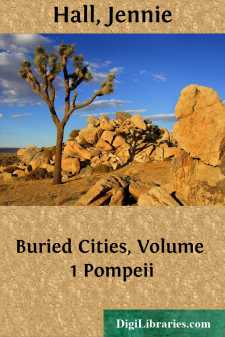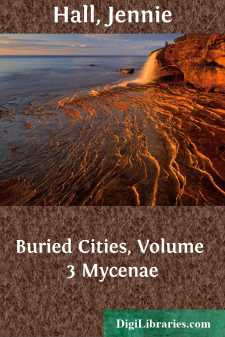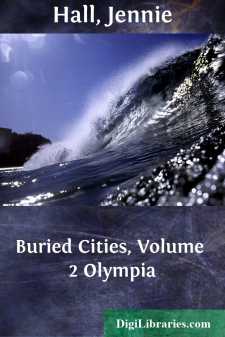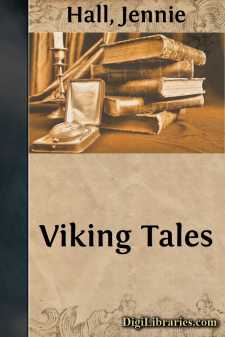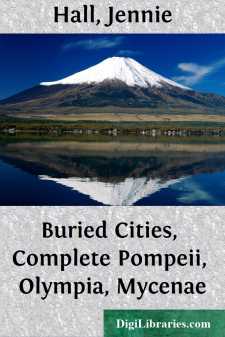Categories
- Antiques & Collectibles 13
- Architecture 36
- Art 48
- Bibles 22
- Biography & Autobiography 813
- Body, Mind & Spirit 142
- Business & Economics 28
- Children's Books 17
- Children's Fiction 14
- Computers 4
- Cooking 94
- Crafts & Hobbies 4
- Drama 346
- Education 46
- Family & Relationships 57
- Fiction 11829
- Games 19
- Gardening 17
- Health & Fitness 34
- History 1377
- House & Home 1
- Humor 147
- Juvenile Fiction 1873
- Juvenile Nonfiction 202
- Language Arts & Disciplines 88
- Law 16
- Literary Collections 686
- Literary Criticism 179
- Mathematics 13
- Medical 41
- Music 40
- Nature 179
- Non-Classifiable 1768
- Performing Arts 7
- Periodicals 1453
- Philosophy 64
- Photography 2
- Poetry 896
- Political Science 203
- Psychology 42
- Reference 154
- Religion 513
- Science 126
- Self-Help 84
- Social Science 81
- Sports & Recreation 34
- Study Aids 3
- Technology & Engineering 59
- Transportation 23
- Travel 463
- True Crime 29
Buried Cities, Volume 1 Pompeii
by: Jennie Hall
Description:
Excerpt
THE GREEK SLAVE AND THE LITTLE ROMAN BOY
Ariston, the Greek slave, was busily painting. He stood in a little room with three smooth walls. The fourth side was open upon a court. A little fountain splashed there. Above stretched the brilliant sky of Italy. The August sun shone hotly down. It cut sharp shadows of the columns on the cement floor. This was the master's room. The artist was painting the walls. Two were already gay with pictures. They showed the mighty deeds of warlike Herakles. Here was Herakles strangling the lion, Herakles killing the hideous hydra, Herakles carrying the wild boar on his shoulders, Herakles training the mad horses. But now the boy was painting the best deed of all—Herakles saving Alcestis from death. He had made the hero big and beautiful. The strong muscles lay smooth in the great body. One hand trailed the club. On the other arm hung the famous lion skin. With that hand the god led Alcestis. He turned his head toward her and smiled. On the ground lay Death, bruised and bleeding. One batlike black wing hung broken. He scowled after the hero and the woman. In the sky above him stood Apollo, the lord of life, looking down. But the picture of the god was only half finished. The figure was sketched in outline. Ariston was rapidly laying on paint with his little brushes. His eyes glowed with Apollo's own fire. His lips were open, and his breath came through them pantingly.
"O god of beauty, god of Hellas, god of freedom, help me!" he half whispered while his brush worked.
For he had a great plan in his mind. Here he was, a slave in this rich Roman's house. Yet he was a free-born son of Athens, from a family of painters. Pirates had brought him here to Pompeii, and had sold him as a slave. His artist's skill had helped him, even in this cruel land. For his master, Tetreius, loved beauty. The Roman had soon found that his young Greek slave was a painter. He had said to his steward:
"Let this boy work at the mill no longer. He shall paint the walls of my private room."
So he had talked to Ariston about what the pictures should be. The Greek had found that this solemn, frowning Roman was really a kind man. Then hope had sprung up in his breast and had sung of freedom.
"I will do my best to please him," he had thought. "When all the walls are beautiful, perhaps he will smile at my work. Then I will clasp his knees. I will tell him of my father, of Athens, of how I was stolen. Perhaps he will send me home."
Now the painting was almost done. As he worked, a thousand pictures were flashing through his mind. He saw his beloved old home in lovely Athens. He felt his father's hand on his, teaching him to paint. He gazed again at the Parthenon, more beautiful than a dream. Then he saw himself playing on the fishing boat on that terrible holiday. He saw the pirate ship sail swiftly from behind a rocky point and pounce upon them. He saw himself and his friends dragged aboard. He felt the tight rope on his wrists as they bound him and threw him under the deck. He saw himself standing here in the market place of Pompeii....


